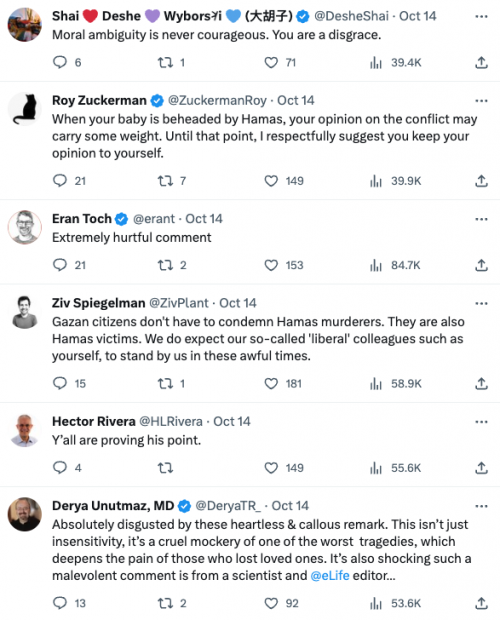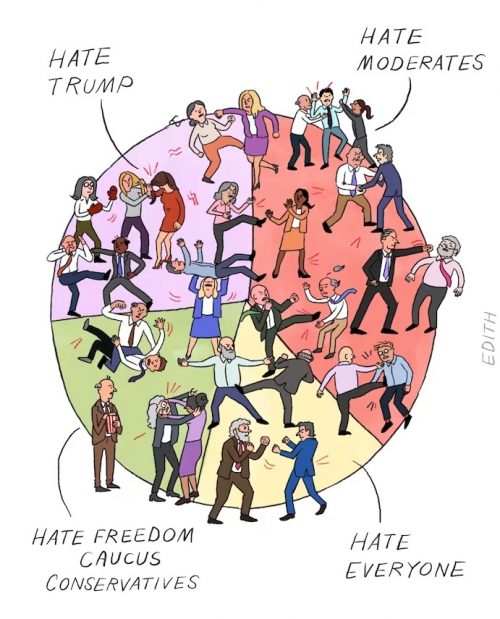I heard that people were walking out on Dave Chappelle’s comedy shows, and I was not surprised — he has a history of being offensive and expressing contempt for gay and trans people. But then I learned why they were walking out.
During his show at TD Garden on Thursday, Dave Chappelle spoke out about the Israel-Gaza conflict, which spurred a walkout by some of his audience members. According to The Wall Street Journal, the comedian first condemned Hamas’ Oct. 7 attack on Israel before slamming Israel’s bombing of Gaza and the United States of “aiding the slaughter of innocent civilians.”
Chappelle’s comments were made after he said that he didn’t think students should lose job offers for being pro-Palestine. An audience member then demanded Chappelle to “shut up,” which elicited an emotional response from the comedian. Chappelle proceeded to bash the Israeli government for cutting off water and other essentials to Gaza and accused it of killing innocent people, according to those in attendance at the Boston show.
A few members of the crowd cheered and shouted “Free Palestine” in support of Chappelle, while others yelled, “What about Hamas,” the attendees said. Some individuals got up and left the show. At the end of his routine, Chappelle reportedly added that “two wrongs don’t make a right,” when speaking about Israeli policies and the Hamas attacks.
But wait, I marveled, I agree with Chappelle in this one case. I think that’s the only humane position to take, to both condemn Hamas and their terror attacks, and to condemn the state of Israel for their hateful history. This does not excuse his other views by any means, but he is not approving of Hamas’ cruelty; he is simply also not approving of Israel’s cruel policies.
Fortunately, I am not a comedian, so I’m safe from ‘cancellation’ (not that Chappelle is cancelled — members of an audience have always had the right to disagree with a comic.) And then I read that a prominent academic has lost his editor position for expecting sympathy for the Palestinian people.
Michael Eisen, editor-in-chief of the prominent open access journal eLife and a longtime critic of traditional journals, says he is losing that job for publicly endorsing a satirical article that criticized people dying in Gaza for not condemning the recent attacks on Israel by the Palestinian group Hamas.
“I have been informed that I am being replaced as the Editor in Chief of @eLife for retweeting a @TheOnion piece that calls out indifference to the lives of Palestinian civilians,” Eisen tweeted today.
The furor began on 13 October when Eisen, a geneticist at the University of California, Berkeley, praised one of The Onion’s fake news stories on X, formerly Twitter. The story bore the headline “Dying Gazans Criticized For Not Using Last Words To Condemn Hamas.” Eisen said “The Onion speaks with more courage, insight and moral clarity than the leaders of every academic institution put together. I wish there were a @TheOnion university.”
Here’s the tweet that got him fired.
The Onion speaks with more courage, insight and moral clarity than the leaders of every academic institution put together. I wish there were a @TheOnion university. https://t.co/R8gufC9opJ
— Michael Eisen (@mbeisen) October 13, 2023
And the “offensive” tweet from The Onion.
Dying Gazans Criticized For Not Using Last Words To Condemn Hamas https://t.co/pshItr0uUS
— The Onion (@TheOnion) October 13, 2023
And here’s a sampling of the responses.
I agree with Hector Rivera; they’re proving his point. Eisen was not approving of beheading babies, there was absolutely nothing heartless and callous said by Eisen. He was not expressing moral ambiguity, but moral clarity, by expecting that we’d have the same respect for all human life. I guess his big mistake was expecting that people would have some sympathy for all the civilians currently targeted for death by the Israeli military.
Hamas and Israel mark each day of war with new numbers measuring the accumulation of death and destruction. The Gaza Health Ministry said more than 5,000 Gaza residents have been killed so far, including 436 in the past 24 hours, primarily in the enclave’s south, where Israel has told more than 1 million Gazans to seek shelter from air raids in the north. The ministry’s figures, which could not be independently confirmed, are not broken down between civilians and militants.
Palestinian babies don’t count, I presume. I made a quick search of a few sites where the anti-“cancel culture” fanatics hang out, Bari Weiss, Heterodox “University”, Jerry Coyne, FIRE, etc. — ouch, that was painful, I normally avoid that crowd, with good reason — and surprise, surprise: they’re not raising a hullabaloo about the Eisen dismissal. They’re all about hating the right people, so I shouldn’t be surprised at all — hating Palestinians is a fine thing to do now, since, don’t you know, they’re all Hamas.
Look, see all the Hamas terrorists fleeing the righteous wrath of the holy IDF?
If you don’t agree they should all be shot or bombed, you should be ashamed and be fired.












